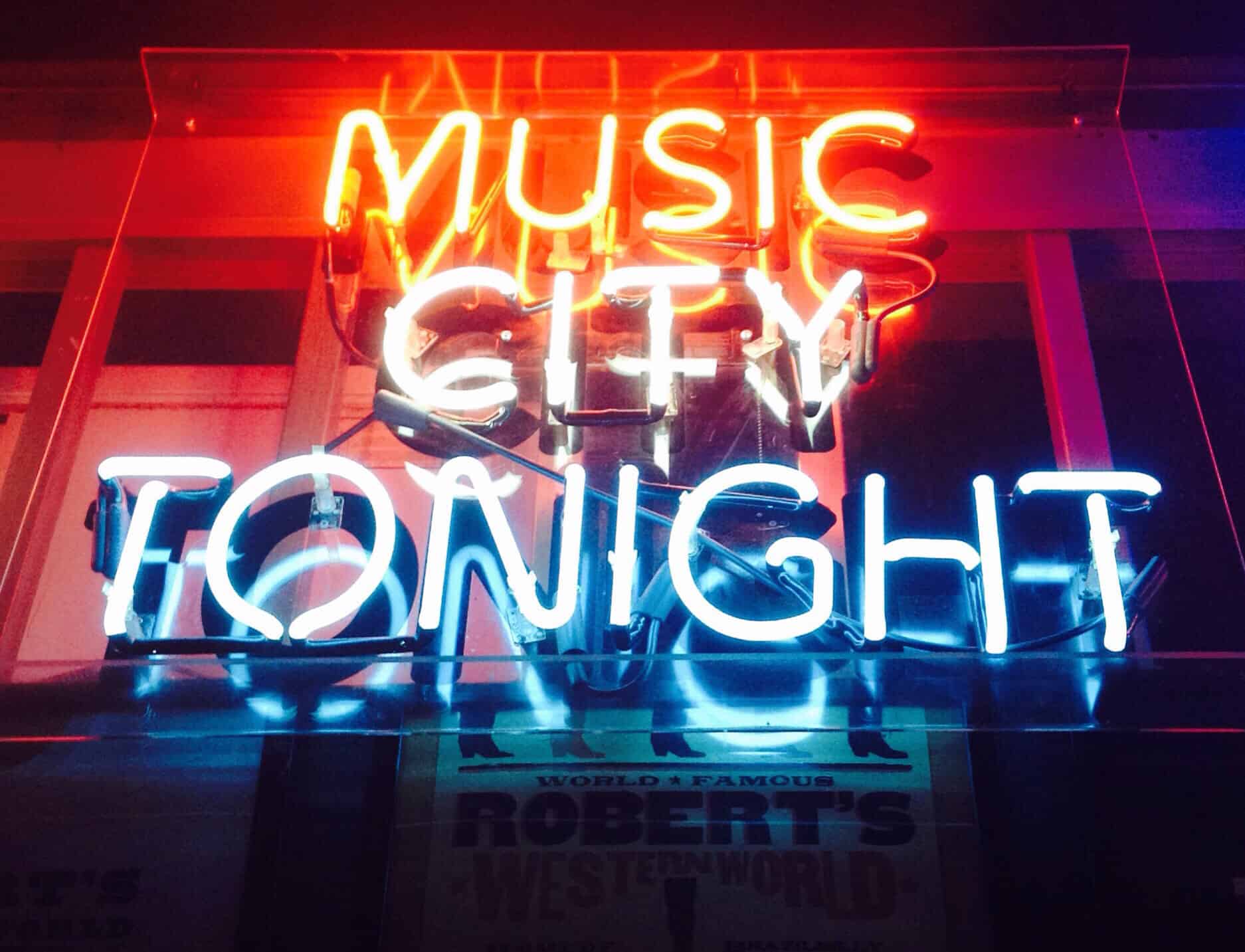by Rich Adams
In the last ten years it has become increasingly popular for Nashville to be where young musicians begin their careers and stake their claim in the music industry. Why has Nashville become so desirable? It has long been known as the home of country music. But what many musicians have also realized is that it’s home to hundreds of music publishers, record labels and countless recording studios — some of which are the best in the world. It is estimated that there are 20,000 music industry jobs in Nashville1. With all of this music being created recorded and marketed on what is known as music row, it’s easy to see why so many musicians are attracted to move to Nashville.
Twenty-five years ago I moved to Nashville with the same aspirations of those who move here today. My move from Boston to Nashville came in 1992, which happened to be a great time for the country music industry. That year saw the biggest peak in record sales from previous decades. Many new artists were being signed and there was a lot of work for musicians. Before I moved here I did my homework; I met people, made contacts, found out where to meet players, song-writers and where to sit-in to be heard. I also saved enough money before I moved so as to not have to get a “day job” while looking for gigs. All of this made it possible for me to begin working as a musician as soon as I arrived.
The planning paid off. I found myself playing in a variety of settings including country demo sessions, showcases, club dates, tours and even jazz gigs. At the time Nashville was still a small community of musicians, everyone seemed to know one another, so it didn’t take long for news to travel if you had the specific set of skills needed for the gig.
Nashville Music Industry Today
But that was then and this is now. Here we are in 2020 and the question from young musicians I meet today is “How can I make a living as a musician today in Nashville?” The music scene here has changed, but so has the city. Nashville has seen a population growth of 350,000 people in the last ten years. This has changed the landscape a bit in what I like to refer as “The New Nashville”. Now more than ever there is widespread opportunity for more musical variety. Moreover, because it’s a very affordable city, young millennials from other industries outside of music are also choosing to start their careers in Nashville, making the city more diverse and vibrant. Despite the changes, there are plenty of opportunities for musicians considering making the move to the New Nashville.
Tips for Young Musicians Thinking About Moving to Nashville
Here is my advice to young musicians considering a move to Nashville:
The biggest adjustment musicians need to make is to not expect the same type of gigs you found in your home-city to be available to you here. Those club-date and casual gigs you were able to fill your date book with are not as available here. Remember the number of musicians you are competing against for these jobs is tremendous; plus there just is not as much of a market for it as in the super-size cities like NYC, LA and the like. Even still, with the over saturation of musicians and music in Nashville, there tends to be a bit of a blasé attitude toward local music by the Nashvillians. But that’s not why you want to move here anyway, right? So here are some gigs that probably don’t exist in your home-city that I find myself playing in Nashville that will lead you into the music industry:
- Session musician for songwriter demos: Hundreds of these recordings are made here every day and the people making them take what they do on these recordings very seriously as they can make or break a songwriter’s and publisher’s career.
- Independently released CDs: This is a great way to gain a reputation as a good studio player and make money doing it. These types of recording projects can be not just country, but also can be rock, jazz Americana or R&B. Beside singer/songwriters, side musicians make these recordings along with up and coming singers honing their style and craft.
- Music beds for placement on TV and movies: It’s becoming increasingly popular to record this type of music in Nashville because of the great number of talented musicians and composers available to create high quality music cues. Many musicians/composers have gotten on board in this end of the industry.
- Touring with a Major Label Recording Artist: It happens all the time. Young musicians are given the opportunity to play with major label artists as they are looking for good musicians with fresh young faces to be on stage with them. Some of these gigs are obtained by audition; some by recommendation. One thing is for sure: you will not know about if you don’t live here.
- Master Recording Sessions: This is the most highly-coveted gig in town. Suffice it to say, these come by way of reputation from all other gigs in Nashville. Musicians need to understand that these sessions are gotten by recommendation and not persistence alone. Be patient and be prepared for when the time comes for you to deliver.
- Nashville showcases – New artist and songwriters are looking to showcase their talent to the industry and create a buzz around town. They are always looking for the best musicians to back them up to sound their best, and these gigs pay! But even more importantly, you’ll make more contacts by doing them.
Opportunities for Live Performing in Nashville
At this point you probably get the idea that the music scene in Nashville is more focused directly on the recording industry and not so much live local cover gigs. There are however local gigs to play too, some of which pay better than others. Anyone who has visited Nashville knows about the Lower Broadway Scene — a string of honky-tonk bars featuring bands from Nashville playing music day and night. This can be lucrative if you’re willing to play long hours and rely on tip money. Being that Nashville is a huge tourist destination, lucrative tip money can be made this way for those willing to work hard for it.

There are other performing opportunities that exist such as playing in bands for corporate parties. While landing a spot in one of these bands is dependent on your reputation as a musician, getting to play these gigs can also be lucrative. I’ve played them opposite or as a warm-up band for a major country artist. Many times, these gigs are booked to perform outside of Nashville, though the band is gathered from Nashville, as the talent pool is great and the players are experienced at performing such large events.
Skills Needed to be Successful in Nashville Music Scene
This brings me to my last point. What are the necessary skills one needs to possess to be successful on any of these sessions or gigs? Having excellent skills on your instrument is a given for any musician to be successful in Nashville. This means having the ability to read a chord chart specifically using the “Nashville Number System” in order to play on recordings sessions and live gigs. Moreover, the ability to quickly write a number chart by ear is a necessary skill especially during sessions. Many times charts are written by the musicians at the beginning of the session by listening to the songwriters version sung with only a guitar accompaniment. So a finely tuned ear for chords and harmony is a tremendous asset for any musician wishing to compete in the Nashville music scene. Ultimately, the less time talking about the chords and the form of the music is best for recording sessions and showcases. Because of this, musicians are expected to be able to communicate with each other very quickly on how to best perform and arrange the music. This means being able to create original parts and appropriate background lines for a song based on its given chords and style. For drummers, this means also being familiar with the Nashville Number System and having the ability to play with a drum-click both in the studio and live. Many artists are now augmenting their shows with live tracks, which require the band to stay in sync. The drummer is the one in charge of keeping everyone together. It also really should go without saying that drummers need to know how to perform a variety of styles and feels including traditional, contemporary-country, rock and R&B. Last, being able to specifically read both treble and bass clef is a definite plus for all musicians as you may need to do so depending on the given style being recorded or played. Those who can sight-read music will have more opportunities for work, especially involving music for TV and film and music involving large orchestrations as in the Contemporary Christian scene.
All in all Nashville has grown drastically in its population, but also in its opportunities. There are more musicians moving here than ever before. But they may not all be ready to take on what is expected of them from the Nashville Music Industry. To increase your odds for success, it’s best to be as prepared as possible professionally. I hope my advice helps clarify what it means to be ready for the Nashville Music scene. I wish you all the best in your future musical endeavors.
1[Infographic] Nashville Growth Over the Past 10 Years
Founder & President at Inside Music Schools | Insidemusicschools.com
Head of admissions and faculty member at Berklee College of Music for 40 years, Steve Lipman and our team at Inside Music Schools speak music as their primary language. We approach each client contact with open eyes, ears, and minds. As the country’s premier music school consultant, he has advised students from the United States, Canada, the U.K., India, Singapore, Dubai, China, Australia, Turkey, Colombia, Argentina, Brazil, Japan, Israel, Italy, Russia and elsewhere.

